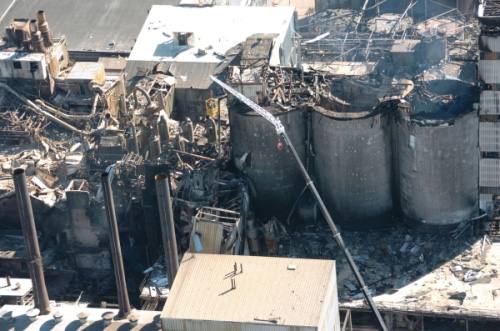
Our firm specializes in boiler explosion cases. Industrial boilers come in a variety of sizes; from around 10 feet up to massive boilers several stories large. And while boilers, under all states laws, must be subjected to rigorous testing and inspections to ensure their continued safety, boiler explosions are quite common and illustrate why such antiquated technology should be monitored even closer so that these dangerous devices do not kill and injure any other individuals. Choosing the right lawyer to assist you or a loved one in any case involving boiler explosions should be based, in large part, on two distinct issues: (1) the knowledge of the lawyer and (2) the lawyer’s ability to utilize that knowledge to achieve the desired results. Boiler explosion cases can involve highly technical issues, and, to be successful, your lawyer will need to have access to and familiarity with the leading experts in the industry. The lawyers at Karsman, McKenzie & Hart have spent years developing the necessary connections with professionals in the fields of accident reconstruction and failure analysis and can put their knowledge and relationships to work for you.
The lawyers at Karsman, McKenzie & Hart have a deep, technical understanding of the way in which boilers work, and eventually fail. Boilers are nothing more that device which utilizes fuel, usually coal or natural gas, to heat water. The water, once turned to steam, is then utilized for a variety of purposes including heating and energy generation. The problem is that heating up any fluid in a confined space can create a pressure vessel prone to explosion if not handled correctly, and the consequences can be catastrophic. There are several standards, usually adopted by most states as their boiler code, including ASME Boiler and Pressure Vessel Code[1], which guide owners and operators of boilers on the standards and procedures necessary for safe use. And while the standards are long and detailed, they generally require that boiler be inspected annually for (1) structural integrity, (2) proper functioning of safety mechanisms and (3) proper operation. Structural integrity of the boiler is important because if the boiler is not structurally sound, it can rupture and possibly explode under normal operating procedures. Safety mechanisms, possibly the most important features of the boiler, are designed to shut the boiler down in the event it begins to operate outside of safety parameters. The two most important parameters include controlling the temperature of the boiler and internal pressure. And while the boiler’s temperature and pressure are directly related, they are both closely monitored. Most boiler explosions are due to over-pressurization. In normal operation, both the temperature and pressure are tightly controlled through thermostats and pressure relief valves, which, if they fail, can lead to catastrophic boiler explosions. When dealing with a boiler explosion, you need lawyers who understand the applicable codes and how they apply in the real world to the particular boiler.
At Karsman, McKenzie and Hart, we have handled numerous industrial explosion cases, both large and small, which have resulted in seven-figure recoveries for our clients. This is a sample of some of the cases our firm has successfully pursued:
- Imperial Sugar Refinery dust explosion in Port Wentworth, Georgia in which a sugar refinery exploded causing 14 people’s death and numerous others to be burned over large parts of their body;
- Chemical explosion due to failure to properly clean industrial piping in large paper mill wherein a single client suffered 2nd and 3rd degree burns all over his body;
- Acid explosion out of a open pipe spraying three people acid leading to chemical burns, facial injuries and blindness;
- Natural gas explosion in which two people were engulfed in natural gas fireball causing severe burns and death of one of the occupants.
Call us today to discuss if we can assist you if you or a loved one has been injured or burned in a boiler or other type of explosion.
[1] Most states incorporate as state law some version of the ASME Boiler and Pressure Vessel Code, including but not limited to Georgia, Ohio, and New York.
